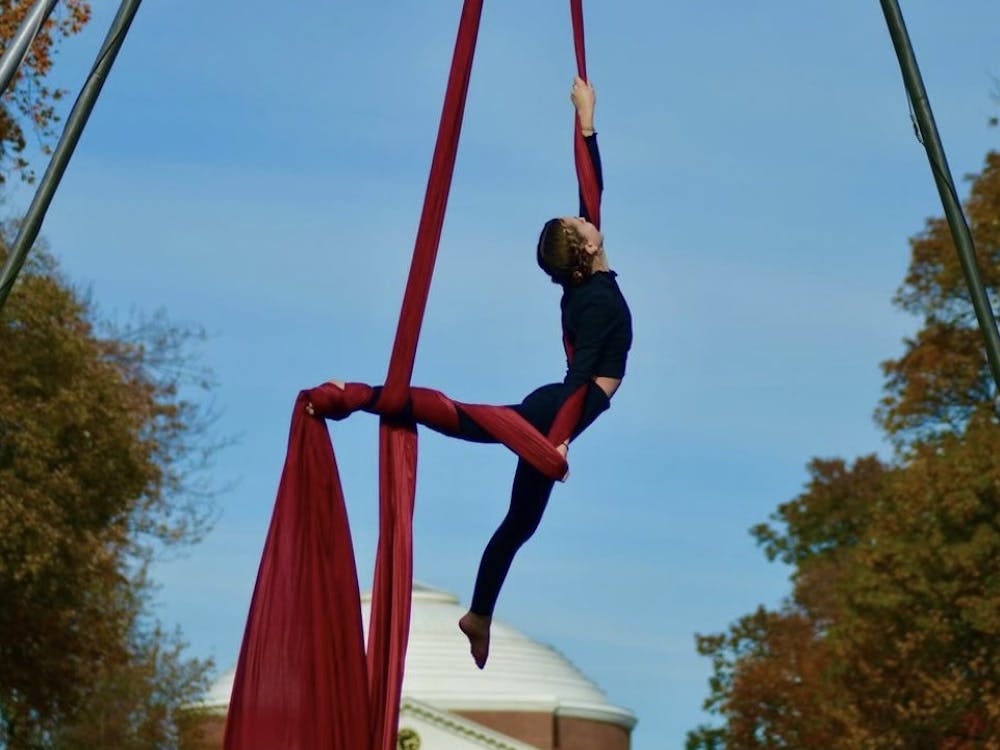Last Thursday, Nau Lecture Hall was crowded with Chinese-language students, book enthusiasts and community members alike, all gathered to listen to award-winning author Ken Liu. The words “Is to Translate to Betray?” were plastered on the screen as the audience quieted down and settled into an easy silence that was broken by the friendly voice of Liu. He spoke about translation theory and his own experiences, in both writing and translating science fiction. In addition to this talk, Liu spoke to Arts and Entertainment about his creative process and journey to becoming a writer.
Liu, an acclaimed writer and translator, did not begin his career with the goal of writing fiction. After graduating from Harvard, he worked in engineering before switching to law, and finally, writing. Before making this official shift, writing was an activity that Liu “almost stumbled into” and was one that was difficult to find time for. Early in the process, Liu would write his novels in “little 500 word chunks” on the commute to and from work.
“[It was] very tough for a long time,” said Liu, acknowledging his initial time constraints. Eventually, however, his books achieved enough success that he was able to switch to writing full time, a process which he deemed an ongoing experiment. His gratitude for the opportunity to write at this level was obvious as he spoke, with a clear sense of excitement and humility.
In addition to writing, Liu also translates Chinese science fiction, a role which he was hesitant to acknowledge.
“I mean I have to be honest, I’m not really a translator by profession, that’s not what I do,” said Liu. Translating, he said, was something he began as a service to his Chinese colleagues, a way to help their novels reach a broader audience. He spoke passionately about the separate roles of writing and translating, noting their distinctions and constraints.
“I try to keep them very separate because the roles are just very different,” Liu said. “The closest analogy is as a writer I’m a composer, but as a translator I’m a performing artist, so these are just very different roles. They don’t really have a lot of overlap other than some skills that may be shared, but the kind of creativity that you get to do as a performer is very different and limited and constrained in different ways than the freedoms you have as a composer.”
Despite this initial hesitation, it was clear in his talk at the University that translating was a matter of great interest to Liu. His points about the “power dynamics” of translation and the “ethical role” of the translator kept the audience engaged throughout the presentation, laughing at his jokes and asking thoughtful questions.
Throughout the talk, Liu spoke often of science and its role in writing and translation. He also revealed that much of the inspiration for his own novels comes from reading scientific research papers. He searches for the beauty in their subtlety and detail, full of the wonder of discovery. As an author with many science fiction books and awards under his belt, it came as no surprise that so many of his ideas emerged from these sources. However, Liu was adamant that he tries not to write under the constraints of genre, preferring to leave the process of labeling until after the novel is complete. Liu described his own style of writing as a process of “literalizing metaphors,” or taking an abstract idea and making it literal in the world of the story.
Liu’s genuine passion for his work emerged while describing his most recent novel — “The Legends of Luke Skywalker,” a new installment in the “Star Wars” universe. He spoke with humorous excitement as he told a story of avoiding studying for a test in college in order to read the newest “Star Wars” trilogy series, explaining that good things can come out of “[doing] the thing that wastes time,” if you are passionate about it.
Liu’s advice for young writers also fell along this line of clever wisdom, as his only piece of advice was to not pay too much attention to advice. Writing, he said, was a craft based on practice, and one that will be different for everyone who attempts it. In his view, no one piece of advice can be taken as “gospel” in such a diverse field.
Liu is currently working on the third novel in his science fiction series “The Dandelion Dynasty,” a story about engineers in a fantasy world, in addition to giving talks at various universities.





